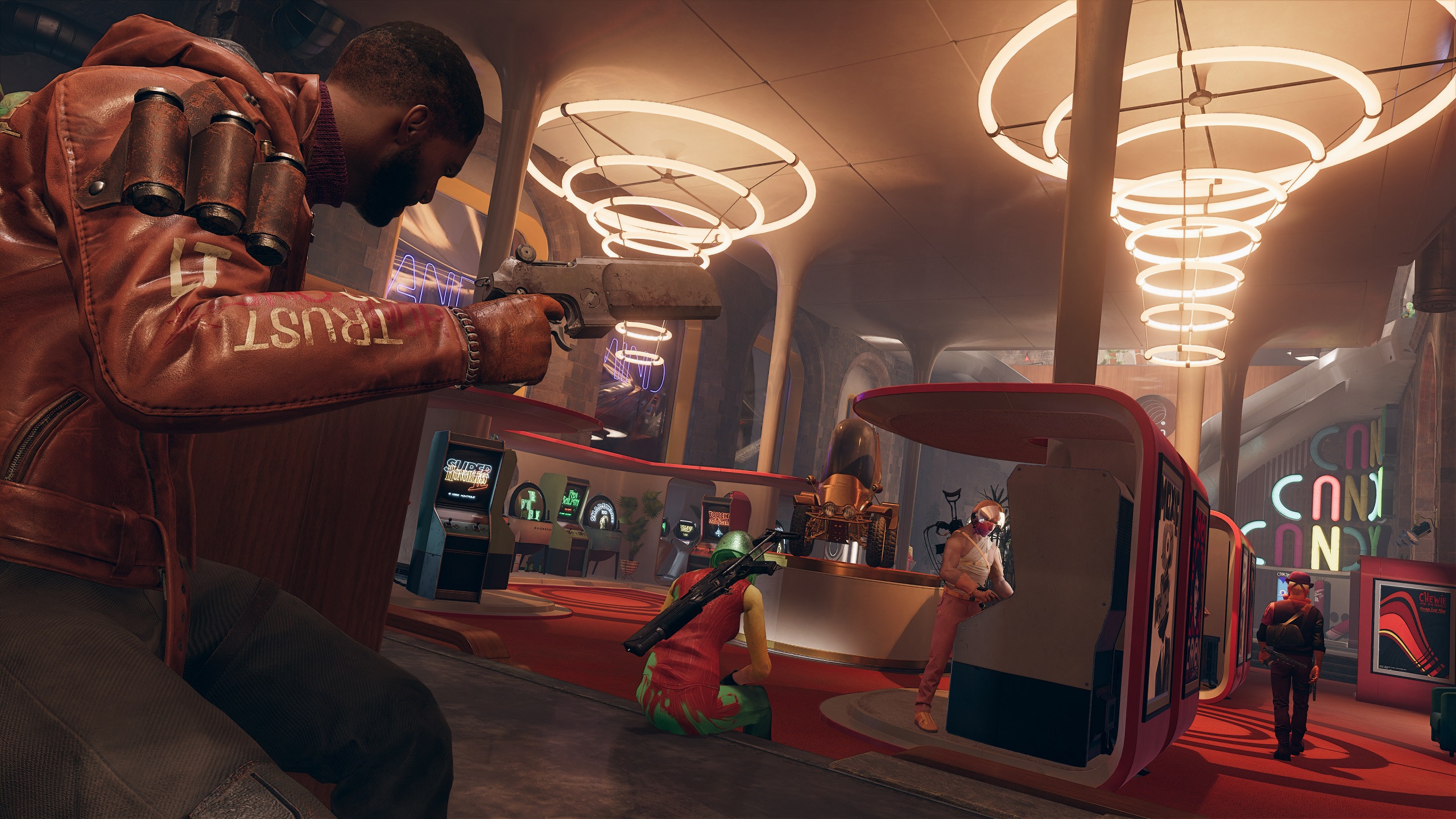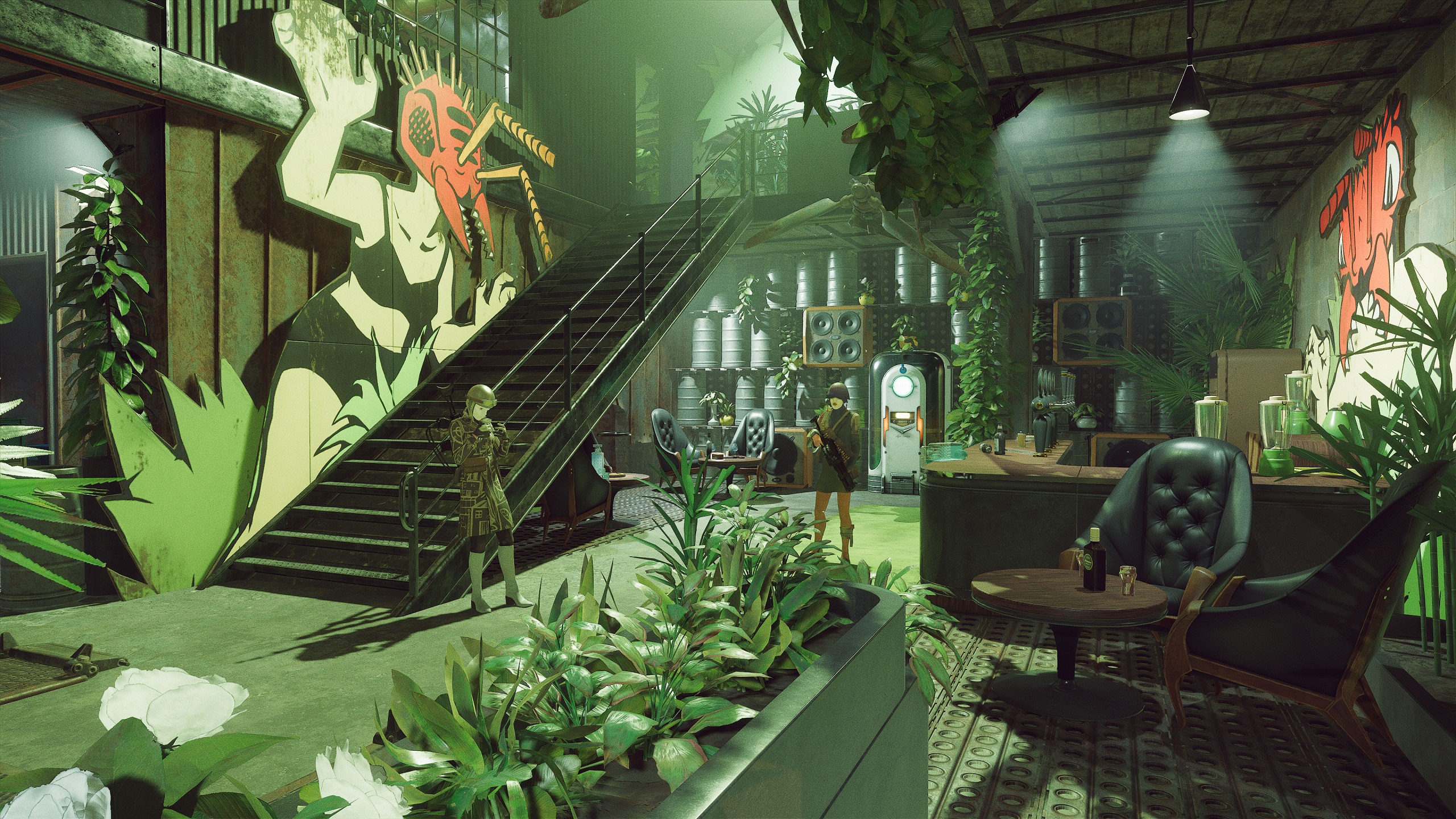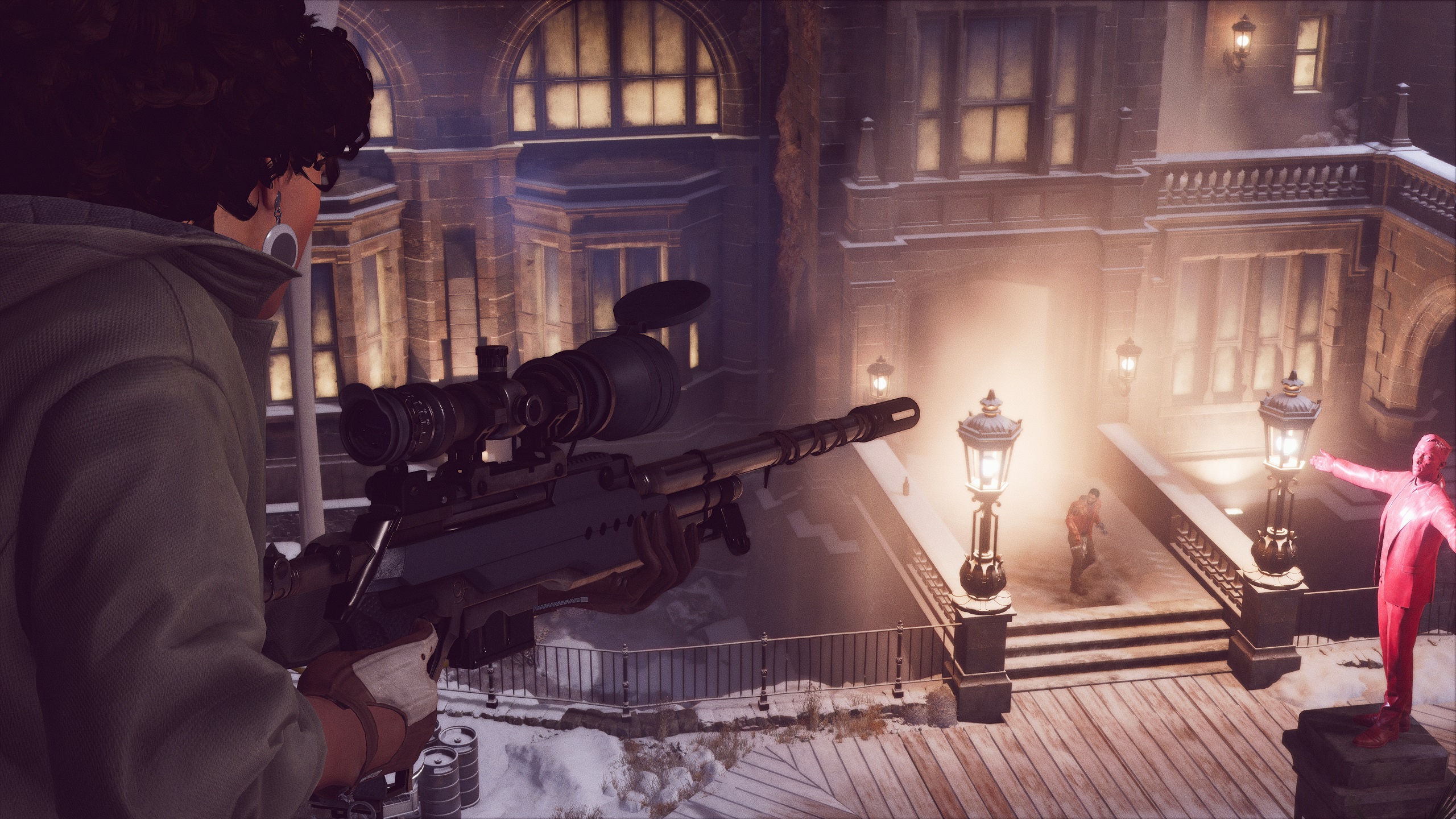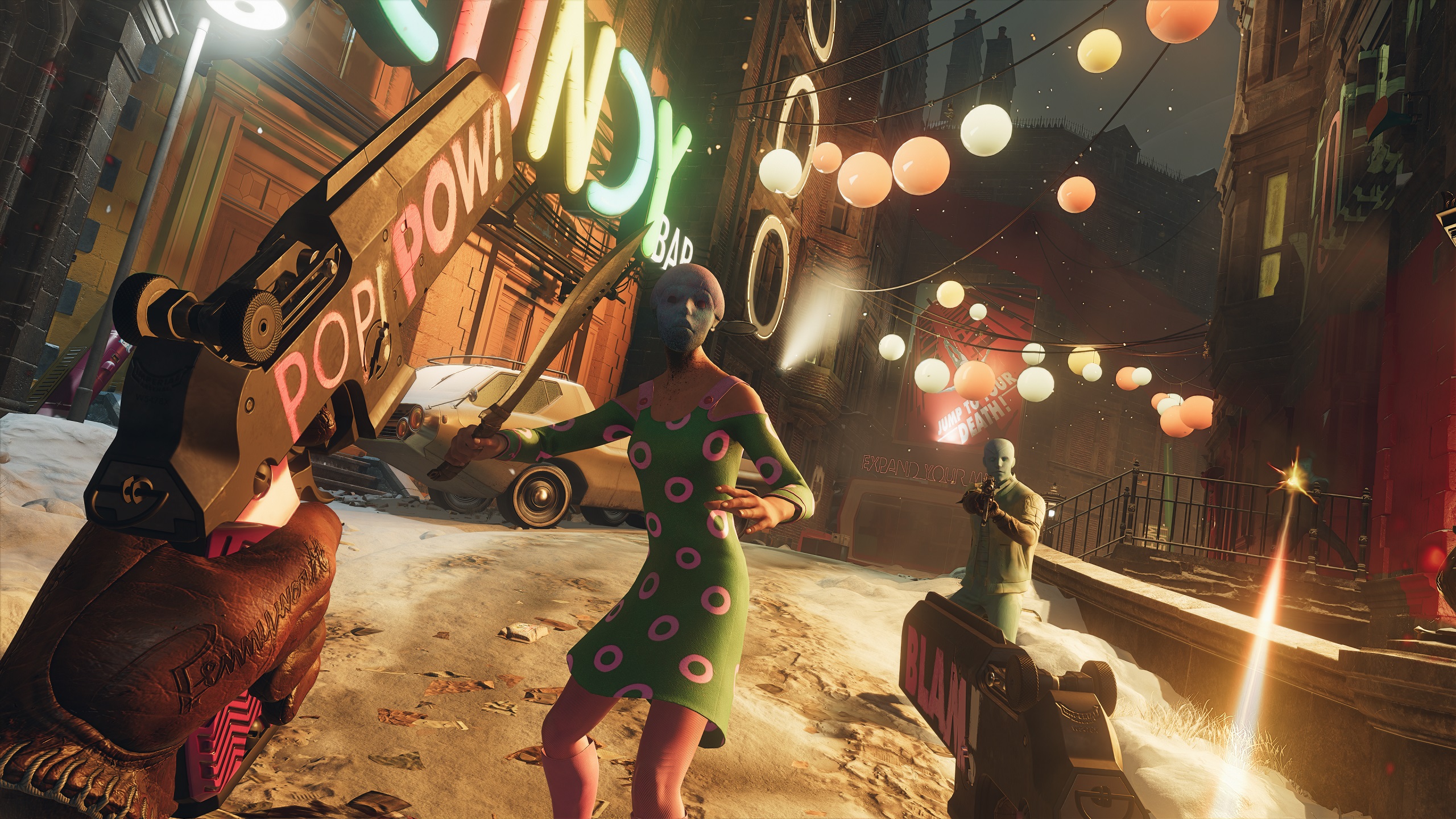Deathloop preview: A stylish, deadly "murder puzzle"
Deathloop challenges you to defeat eight assassins in a temporally unstable shooter

Deathloop is easy to describe, but hard to categorize. You play as Colt Vahn: a killer stuck in a time loop. To break the cycle and free himself, he'll have to match wits against eight deadly assassins, by learning their strengths, weaknesses and schedules each time he repeats the loop. That means having to dispatch enemies via melee combat, gunplay or stealth, as well as navigating a large, interconnected world to discover clues about the assassins.
As such, what is Deathloop, exactly? Is it a shooter? A stealth game? An action game? A puzzle game? A roguelike?
- Play the best PS5 games
- Also try the best PC games
- Plus: Resident Evil Village ending explained — what the hell was that?
According to developer Arkane and publisher Bethesda, it's all of the above. They call it a "murder puzzle," and having seen the game in action, I think it's as good a description as any. Arkane and Bethesda showed off about 45 minutes of Deathloop's gameplay in a hands-off press demo, and fans of Arkane's previous series, Dishonored, will probably like what's on offer.
Break the cycle

The demo began with Deathloop's protagonist, Colt, waking up on the isolated Blackreef Island with a severe case of amnesia. While we can't discuss the specifics of Colt getting his bearings, we can say that he learns the basics of his situation quickly.
Here's the setup: Blackreef is caught in a time loop. Eight infamous assassins, and their servants, the Eternalists, want to keep it that way. After all, the loop makes them effectively immortal. Colt wants to break the cycle and escape; the assassins want to protect the cycle, and their immorality, at any cost. This is particularly true of Julianna Blake: the game's main antagonist. Julianna has elected to hunt Colt herself, and has grown to enjoy their recurring cat-and-mouse game.
The early part of the demo wasn't so much about showing off the gameplay, but rather, explaining how Deathloop's myriad systems work together. In isolation, the mechanics all sound pretty standard. The whole game takes place from a first-person perspective, and Colt can shoot enemies with a variety of guns, slice or bludgeon them with melee weapons, or sneak up behind them and dispatch them stealthily. He gets a variety of powers, some of which help him traverse the environment, and some of which help him in combat. Blackreef has a variety of environments, from rocky beaches to vibrant cityscapes. There are a lot of ideas on display here from Arkane's previous works, particularly Dishonored.
Colt has quite a few tools at his disposal, however. The devs showed off handguns, submachine guns, rifles, shotguns and even a silenced nail gun. (Useful if Colt runs into an assassin in a hardware store, we suppose.) Colt can augment his abilities with "slabs," which give him supernatural powers, as well as "trinkets," which confer milder upgrades to Colt and his weapons. For example: an early-game slab gives Colt the ability to launch energy grenades, while trinkets can reduce damage, improve a weapon's output or even give Colt a double-jump.
Sign up to get the BEST of Tom's Guide direct to your inbox.
Get instant access to breaking news, the hottest reviews, great deals and helpful tips.
Arkane wouldn't come right out and say that Deathloop is a roguelike ("It's the community that decides what genre your game falls into," said Dinga Bakaba, the game's director), but it definitely incorporates a lot of roguelike elements. That means that when (not if) Colt dies, the game world resets.
However, Colt can carry some of his weapons and abilities through from playthrough to playthrough, thanks to a resource called Residium, which enemies drop as you defeat them. This should help reduce some of the frustration associated with roguelikes' random item drops, as well as the feeling that not every run is worthwhile. At the same time, Residium seems to be limited enough that you won't be able to carry every single piece of gear with you, at least at first.
While Deathloop looks like a pretty big game (Arkane claims there's about twice as much explorable territory as Dishonored 2), there are only three important considerations to keep in mind during each run. There are eight assassins, four explorable districts and four time periods per day: morning, noon, afternoon and evening. By experiencing each district during each time period, you'll find out valuable information about each assassin, and can use that to plan your ultimate attack. Kill all eight assassins in a single run, and you'll break the loop — or so it seems, anyway.
Protect the cycle

After the early-game briefing, we got to see Colt take on one of the deadly assassins: a greedy industrialist named Alexis Dawson. Colt learned that Alexis would appear as the guest of honor at a fancy party. The devs attempted to shoot their way through the front door — and got promptly blasted to smithereens. Thankfully, an ability called Reprise rewound time slightly, giving Colt another shot at tackling Alexis. However, Reprise works only twice per run, so it's a limited safeguard, at best.
The second time around, the devs took a stealthier approach, sneaking past guards and finding alternate entrances into the party. They also made use of the Hackamajig: Colt's trusty all-purpose gadget, which can open locked doors, hack turrets and just generally create havoc for electronic devices. Both the Hackamajig and each weapon will create a distinct feeling on the DualSense controller, but this was a bit hard to gauge in a hands-off demo.
Assassinating Alexis wasn't as simple as finding a way in and starting a firefight, though. Instead, Colt explored Alexis's mansion, finding notes and listening in on conversations as he went. Some of these were just for color or world-building; others gave potentially game-changing information, such as a code that opened a door in the distant library, which is only open during the day.
Colt made it as far as the party's main ballroom, where he got gunned down by sheer overwhelming force. But on the next run, the devs took him to the library, where they learned exactly when Alexis would appear at the party. That night, Colt infiltrated the mansion at just the right time, and dropped Alexis into a meatgrinder: a bit of poetic justice for an exploitative overseer who treats his workers like livestock.
Escaping the party was a whole separate problem, however, as Colt encountered Julianna, armed with a sniper rifle. Unlike the other assassins, Julianna will actively hunt Colt during each cycle, adding an element of unpredictability to each run. What's more, other players online can take control of Julianna, making her potentially even more dangerous than an AI adversary.
The Arkane devs explained that players will want to take control of Julianna partially to earn cosmetic rewards, but mostly because of "social interaction" and "creating interesting stories." Granted, it's easy to see how player-controlled Juliannas could create disparities, particularly if there's a huge skill gap between hunter and hunted. We'll have to see how this feature plays out in the final game, but it sounds intriguing, at least.
Deathloop outlook

Deathloop's gameplay bears more than a passing familiarity to Dishonored's. But in terms of story, setting and general game structure, Deathloop is very much its own beast. "Murder puzzle" is as good a designation for the genre as any, since it seems to be equal parts action-packed combat and logical problem-solving.
The game will debut on September 14 for both PS5 and Windows 10. As a last hurrah for PlayStation Bethesda fans, it seems like it could be a good one; after that, Bethesda games will probably debut on Xbox consoles.
Marshall Honorof is a senior editor for Tom's Guide, overseeing the site's coverage of gaming hardware and software. He comes from a science writing background, having studied paleomammalogy, biological anthropology, and the history of science and technology. After hours, you can find him practicing taekwondo or doing deep dives on classic sci-fi.

